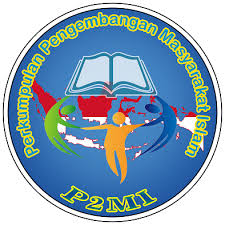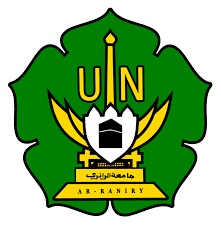EMPOWERING VILLAGE COMMUNITIES THROUGH DIGITAL LITERACY BASED ON THE UTILIZATION OF E-COMMERCE IN KARANGSARI VILLAGE - KULON PROGO
DOI:
https://doi.org/10.22373/al-ijtimaiyyah.v11i1.28787Keywords:
Community Development, Digital Literation, E-CommerceAbstract
This research aims to explore how digital literacy can empower the village community of Karangsari, Kulon Progo, through the use of e-commerce. With increasing access to the internet and digital technology, Karangsari Village holds significant potential to enhance its local economy via e-commerce platforms. The study employs a qualitative approach, involving in-depth interviews, observations, and documentation with micro, small, and medium-sized enterprises (MSMEs), as well as direct observation of community empowerment activities conducted by the Yogyakarta Communications and Informatics Office. Findings reveal that while substantial support for internet infrastructure in the village is crucial, it must be accompanied by high-quality digital literacy education to be truly effective. Strengthening digital literacy can improve the community’s ability to raise their standard of living—particularly by enabling MSME actors to market their products online, thereby increasing income and overall community welfare. The study concludes that more structured and sustainable digital literacy training programs are essential to effectively support the empowerment of rural communities in the digital era.Downloads
References
Achmad, Willya. “MSMEs Empowerment through Digital Innovation: The Key to Success of E-Commerce in Indonesia.” Daengku: Journal of Humanities and Social Sciences Innovation 3, no. 3 (2023): 469–75. https://doi.org/10.35877/454ri.daengku1742.
Affandi, Muhamad, Joni Bungai, and Indra Perdana. “Implementasi Literasi Digital Melalui Pengembangan Website Desa Sebagai Upaya Pemberdayaan Masyarakat.” Jurnal AKRAB 11, no. 1 (2020): 54–63. https://garuda.kemdikbud.go.id/documents/detail/1861122.
Afriansyah. Pengertian Dan Konsep Pemberdayaan Masyarakat. Pemberdayaan Masyarakat, 2023.
Andi, Ansar Firman. “Pemberdayaan Masyarakat Di Desa Berbasis Komunitas.” Jurnal Tata Sejuta STIA Mataram 7, no. 1 (2021): 132–46.
Anggraini, Oktiva, and Supriyanto Supriyanto. “Literasi Digital: Suatu Kemewahan Bagi UMKM Perikanan Di Era Industri 4.0?” Prosiding Seminar Dan Lokakarya Kualitatif Indonesia 2019, 2019, 117–26. https://doi.org/10.33510/slki.2019.117-126.
APJII. “Hasil Survei Penetrasi Internet Di Indonesia 2024.” APJII, 2024. https://apjii.or.id/berita/d/apjii-jumlah-pengguna-internet-indonesia-tembus-221-juta-orang.
Books, Berghahn. “Digital Literacy for Refugees,” 2022.
BPS. “Tingkat Pengangguran Terbuka (TPT) Sebesar 5,45 Persen Dan Rata-Rata Upah Buruh Sebesar 2,94 Juta Rupiah Per Bulan.” BPS, 2023.
Choirunisa, Risda, and Dety Mulyanti. “Literature Review: Peran E-Commerce Dalam Meningkatkan Pendapatan Umkm Di Era New Normal.” Jurnal EBI 5, no. 1 (2023): 9–15. https://doi.org/10.52061/ebi.v5i1.102.
Desmaryani, Susi, Ahmad Soleh, Irmanelly, and Iqra Wiarta. “Integration of Technology Acceptance Models and Government Support to Improve Digital Literacy.” Heliyon 10, no. 14 (2024): e34086. https://doi.org/10.1016/j.heliyon.2024.e34086.
DIY, Diskominfo. “Tugas Dan Fungsi Instansi,” 2024. https://diskominfo.jogjaprov.go.id/.
Endah, Kiki. “Pemberdayaan Masyarakat : Menggali Potensi Lokal Desa.” Moderat: Jurnal Ilmiah Ilmu Pemerintahan 6, no. 1 (2020): 135–43. https://jurnal.unigal.ac.id/moderat/article/view/3319/2914.
Gede, I, Juliana Eka Putra, Ayu Pradnyandari, Dananjaya Erawan, Wikan Aditya, Wayan Juniarta, I Made, Adi Surya Permana, and Wahyu Baskara. “Pelatihan Digital Marketing Dalam Upaya Meningkatkan Literasi Digital Umkm Desa Keramas.” BERNAS: Jurnal Pengabdian Kepada Masyarakat 4, no. 1 (2023): 200–205. https://doi.org/10.31949/jb.v4i1.3880.
Guess, Andrew M., Michael Lerner, Benjamin Lyons, Jacob M. Montgomery, Brendan Nyhan, Jason Reifler, and Neelanjan Sircar. “A Digital Media Literacy Intervention Increases Discernment between Mainstream and False News in the United States and India.” Proceedings of the National Academy of Sciences of the United States of America 117, no. 27 (2020): 15536–45. https://doi.org/10.1073/pnas.1920498117.
Harini, Noor, Didik Suhariyanto, Indriyani Indriyani, Novi Novaria, Aprih Santoso, and Elsa Yuniarti. “Pendampingan Pemberdayaan Masyarakat Dalam Meningkatkan Perekonomian Desa.” Amalee: Indonesian Journal of Community Research and Engagement 4, no. 2 (2023): 363–75. https://doi.org/10.37680/amalee.v4i2.2834.
Harmoko, Danang Dwi. “Digital Literacy As A Solution To Improve The Quality Of Indonesia’s Human Resources.” Research and Development Journal of Education 7, no. 2 (2021): 413. https://doi.org/10.30998/rdje.v7i2.10569.
Herdiana, Oding, Nuraly Masum Aprily, and Les Ping On. “Pelatihan Skill Literasi Digital Dalam Pengelolaan Data Bagi Pelaku Usaha UMKM.” Jurnal Abdimas Ekonomi Dan Bisnis 2, no. 2 (2022): 86–95. https://doi.org/10.31294/abdiekbis.v2i2.1432.
Lankshear, Colin, and Michele Knobel. “Digital Literacies” 30 (2008).
Moleong, Lexy J. Metodologi Penelitian Kualitatif. Bandung: PT. Remaja Rosdakarya, 2000.
Nursalam, Suardi, Indah Ainun Mutiara, and Herdianty. “Pemberdayaan Masyarakat Desa Melalui Literasi Digital Berbasis Cr Code Di Desa Bonto Jai Kecamatan Bissappu Kabupaten Bantaeng.” Jurnal Pengabdian Kepada Masyarakat MEMBANGUN NEGERI 4 No. 2, no. 2 (2020): 228–38.
Ramdhan, Fuad, and Muhammad Khairul Anwari. “Pelatihan Literasi Digital Bagi Pelaku Usaha Mikro Kecil Dan Menengah (UMKM) Kuliner Kota Pontianak.” GERVASI: Jurnal Pengabdian Kepada Masyarakat 7, no. 2 (2023): 1008–17. https://doi.org/10.31571/gervasi.v7i2.6281.
Rianto, Puji. “Literasi Digital Dan Etika Media Sosial Di Era Post-Truth.” Interaksi: Jurnal Ilmu Komunikasi 8, no. 2 (2019): 24. https://doi.org/10.14710/interaksi.8.2.24-35.
Sitorus, Siti Hazar, and Mukhammad Fatkhullah. “Pemberdayaan Masyarakat Nelayan; Peran Dan Kontribusi Dinas Perikanan Dan Kelautan.” Masyarakat Madani: Jurnal Kajian Islam Dan Pengembangan Masyarakat 7, no. 1 (2022): 1. https://doi.org/10.24014/jmm.v7i1.16264.
Sitorus, Siti Hazar, and Rahmad Hidayat. “Berdaya Di Era Pandemi : Peran Corporate Social Responsibility Dalam Penanggulangan COVID-19” 1, no. 2 (2020): 37–48.
Sitorus, Siti Hazar, and Rahmat Hidayat. “Strategi Mitigasi Kebakaran Hutan Dan Lahan Melalui Pemberdayaan Masyarakat Di Sungai Pakning Kabupaten Bengkalis Provinsi Riau.” International Conference Communication and Sosial Sciences (ICCOMSOS) 1, no. 1 (2020): 23–29. http://sipongi.menlhk.go.id.
Sutanta, Edhy, and Catur Iswahyudi. “Perluasan Jaringan Internet Nirkabel Dan Penyediaan Sarana TIK Untuk Mendukung Pengembangan Kampung Digital Di KIM NAS Kulon Progo Daerah Istimewa Yogyakarta.” IJCOSIN: Indonesian Journal of Community Service and Innovation 3, no. 2 (2023): 08–17. https://doi.org/10.20895/ijcosin.v3i2.1092.
Wahjusaputri, Sintha, and Tashia Indah Nastiti. “Digital Literacy Competency Indicator for Indonesian High Vocational Education Needs.” Journal of Education and Learning (EduLearn) 16, no. 1 (2022): 85–91. https://doi.org/10.11591/edulearn.v16i1.20390.
Widiyanto, Delfiyan, Annisa Istiqomah, and Yasmanto. “Upaya Pemberdayaan Masyarakat Desa Dalam Perspektif Kesejahteraan Ekonomi.” Jurnal Kalacakra 02, no. 1 (2021): 26–33.
Zaifuddin, Zaifuddin. “Pemberdayaan Masyarakat Melalui Online Marketing: Penguatan Ekonomi Masyarakat Desa Berbasis Digital.” Jurnal Pemberdayaan Masyarakat 10, no. 1 (2022): 31. https://doi.org/10.37064/jpm.v10i1.10044.
Downloads
Published
Issue
Section
License
Authors who publish in Jurnal Al-Ijtimaiyyah agree to the following terms:
- Authors retain copyright and grant the journal right of first publication with the work simultaneously licensed Attribution-ShareAlike 4.0 International (CC BY-SA 4.0) that allows others to share the work with an acknowledgment of the work's authorship and initial publication in this journal.
- Authors are able to enter into separate, additional contractual arrangements for the non-exclusive distribution of the journal's published version of the work (e.g., post it to an institutional repository or publish it in a book), with an acknowledgment of its initial publication in this journal.
- Authors are permitted and encouraged to post their work online (e.g., in institutional repositories or on their website) prior to and during the submission process, as it can lead to productive exchanges, as well as earlier and greater citation of published work. (See The Effect of Open Acces)







